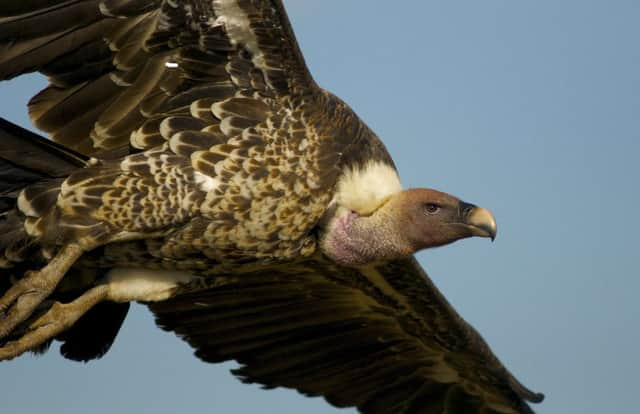Declining vulture populations given new hope


Four of Africa’s 11 vulture species were listed as critically endangered this year on an international “red list” of species under threat. The population of seven of those species declined by at least 80 per cent over the past 50 years, according to a study published this year in the journal Conservation Letters.
But how many people really care about such a creature? American writer Mark Twain described it as having a “bald, red, queer-shaped head, featherless red places here and there on his body, intense great black eyes set in featherless rims of inflamed flesh”.
Advertisement
Hide AdAdvertisement
Hide AdVultures are overshadowed by threatened “sexy, charismatic species” like the lion, rhino and elephant, said Masumi Gudka, Kenya-based vulture conservation manager for BirdLife International, a group with branches in 120 countries.
She said you have to “be creative” in the hunt for an “innovative way to sell the species that people think are ugly” – for example, vultures get positive press from Birdorable, a website that sells clothing and other items with soft, rounded images of birds, she said.
Ms Gudka said on a recent walk she passed a 1.2-mile-wide cliff in Kenya’s Rift Valley that is home to the critically endangered Rueppell’s species of vulture and about 200 were in the skies or on the cliff overlooking the dry bed of Lake Kwenia in the country’s south.
Researchers believe the species may have been there for centuries, ranging widely on foraging expeditions.
There is hope for this species. While this refuge is on private property, conservationists want to raise funds to buy the land and create a conservation area. They are being backed by Maasai livestock herders, who could benefit from any ecotourism while keeping a protective eye on the vultures in their midst.
Vulture body parts are precious in traditional medicine in parts of Africa, making the birds a target for poachers.
Additionally, rhino and elephant poachers sometimes poison vultures because they circle above carcasses, giving away the poachers’ location to rangers.